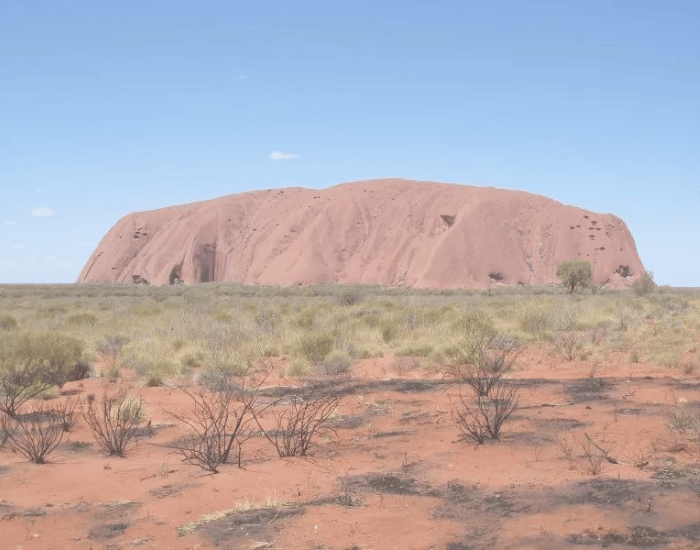Table of Contents
Constitutional Recognition & Finally a Treaty With Indigenous Australians?
Discussions have centred around the need for a treaty with Indigenous Australians, as well as constitutional reform for many many decades. Many would argue that the signing of a treaty recognising Aboriginal people is redundant, as obviously this exists and was legally confirmed long ago. Unfortunately, a federal treaty did not and still does not exist.
Historic Victorian bill passes, finally honouring Australian Aborigines
Who could possibly imagine that Victorian Parliament’s new bill is actually the first time legislation stating a formal intent to negotiate a treaty or treaties with Aboriginal people has ever been adopted by an Australian parliament. It’s honestly shameful. Australia was colonised approximately 230 years ago and only now has the Aboriginal treaty law passed.
Quite shockingly, Australia is the only commonwealth country that does not have a treaty with its Indigenous people. Isn’t it time Australia caught up to the rest of the world and developed a treaty with Indigenous Australians?
What is the Aboriginal treaty and why is it important?
The purpose of the Indigenous Australians treaty is to formally acknowledge Indigenous people’s history and prior occupation of Australia. Aboriginal rights is sadly something that has not been addressed even after centuries of colonisation. A treaty would identify the necessary inclusions and ensure that the horrendous injustices have been acknowledged.
Special minister of state, Gavin Jennings said that “a treaty would go some way towards healing the “negative impact of 230 years of dispossession and systemic oppression of Aboriginal and Torres Strait Islander peoples”. Even the language used in the bill declares that the “time has now come to take the next step towards reconciliation and to advance Aboriginal self-determination”.
In a recent media release, Aboriginal Affairs Minister Natalie Hutchins said that this triumphant moment “would improve the lives of Aboriginal Victorians and allow the state to recognise their unique status, rights, cultures and histories.” In explaining the historic moment, Minister Hutchins expressed that this is “promoting reconciliation, fostering shared pride in Aboriginal culture and helping to heal the wounds of the past.”
Aboriginal Victorians Bill 2018 recognises first peoples of Australia
The Aboriginal Victorians Bill 2018 clearly identifies that the state of Victoria “acknowledges Victorian traditional owners as the first peoples”. In addition, that the state recognises “the diversity of Aboriginal Victorians, their communities and cultures, and the intrinsic connection of traditional owners to Country.” It also outlines the understanding between the Aboriginal representative body and the state with respect to the treaty negotiation framework.
The Treaty Negotiation Framework
The Aboriginal representative body together with the Victorian state must ensure that the negotiation of treaty or treaties:
(a) recognise historic wrongs; and
(b) address ongoing injustices; and
(c) help heal wounds of the past; and
(d) support reconciliation; and
(e) bring pride to Victorians; and
(f) have positive impacts for Victoria; and
(g) promote the fundamental human rights of Aboriginal peoples, including the right to self-determination; and
(h) acknowledge the importance of culture to Aboriginal identity; and
(i) enhance the laws of Victoria
While we celebrate the Victorian bill, it’s important to remember that this is merely an expected and required action that should have occurred long ago.
Historical understanding of a treaty with Australian Aboriginals
The need for a treaty dates as far back as 1832. The administration’s appalling treatment of Aboriginal people and the lack of a relationship with its Indigenous community was highlighted by a governor at the time.
Lieutenant-Governor George Arthur, of Van Diemen’s Land (presently Tasmania), understood the importance of land rights and treaties. He was actually the first colonial governor to argue that a treaty should have been created and he advised the British government that not entering into one was a grave error. While he was one of the first proponents of a treaty, the issue has been raised on numerous occasions.
In more recent years, former prime minister, Bob Hawke presented the “Barunga Statement”, calling for a treaty to be created. He even promised that by 1990, a treaty with Australia’s Indigenous people would be in existence. Well, obviously that didn’t occur, as he reneged on his word.
A formal apology for the atrocities over the last 2 centuries, finally happened in 2008. Prime Minister Kevin Rudd apologised to Australia’s Indigenous people, for “policies that had inflicted suffering on them”. However, until a few days ago no other actions had materialised.
Australia’s constitution needs reform – It doesn’t even recognise Indigenous Australians
The Australian human rights commission highlights why constitutional reform is imperative. Quite simply, “the story of our nation is incomplete because our Constitution….is silent on the histories of the people who inhabited this continent before European settlement”. From a constitutional perspective, presently, the constitution only regards Australia “from the time of British settlement. It does not mention the stories and history of Aboriginal people”.
Minjungbal man and Recognise ambassador Mark Yettica-Paulson has been trying to gain support for constitutional recognition. He explains that prior to the efforts of Recognise, “half of Australians didn’t know about the constitution, its content and the racial discrimination in there”. He elaborates further by highlighting that it’s “as if the history of Australia began in 1900, so the cornerstone legal document of this country needs to recognise the First Peoples”.
The Human rights commission emphatically states that it’s “time for the Australian Constitution to reflect the Australian identity and recognise our Indigenous history”.
When you consider a treaty with the first peoples of Australia, it’s imperative that Australia’s governing laws are in alignment. This is why both a treaty and constitutional reform are long overdue. They’re essential, both for Indigenous Australians and the future of Australia.
What impact would a treaty have on the Australian constitution?
Minjungbal man Russell Logan and founder of the first Indigenous branch of the Australian Labor Party, explained the importance. He highlighted the need for more Indigenous representatives in Parliament. “Recognition and a treaty might help to engage more Aboriginal and Torres Strait Islander people in politics”. He warned that “constitutional recognition would be pointless without a treaty.”
Wiradjuri man and director of Southern Cross University’s Gnibi College, Norm Sheehan said that a “new constitution will take out the colonial and racist overtones of our original constitution”. Constitutional reform and recognition are issues of great importance. The existing language must be amended in order for a treaty to be meaningful.
Conclusion:
Many of us may be wondering why indigenous Australians have not been recognised in Australia’s governing document – the constitution. It seems absurd. Why is this even being debated?
The law must reflect the inhabitants of the land and it seems logical that the first peoples of the country must be represented. Is it crazy to expect this? When you consider that every other commonwealth country has a treaty with its Aboriginal people, then it is even more shocking that Australia does not.
While we are all celebrating the efforts of those responsible for the progress achieved in Victoria, we must ask ourselves why this has not been applied on a federal level?
When will the other Australian states develop a treaty with the Aboriginal and Torres Strait Islander peoples?
We value our readers’ opinions and invite you to voice yours by sharing in this important discussion.
If you would like to learn more about the ways in which we are helping improve the lives of indigenous Australians, feel free to contact us. We would love to hear from you!

